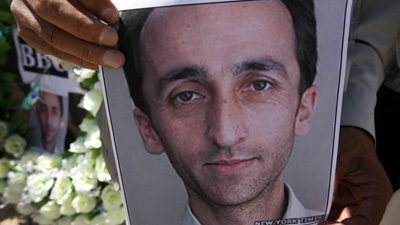This morning, Prime Minister David Cameron announced that British aid worker Linda Norgrove, who died in a rescue attempt after she was taken hostage in Afghanistan, may have been killed by a U.S. grenade rather than by her Taliban captors, as originally reported.
The Norgrove rescue operation was carried out by U.S. military forces, and video surveillance suggests that multiple grenades were thrown into the area where Norgrove’s body was later found, according to a report on The New York Times website.
The decision to undertake a hostage operation is clearly a difficult one, and there is always a high risk that the hostage or other non-combatants could be killed. It must also be noted that the U.S. military personnel who participated in the operation put their own lives on the line in an effort to save Norgrove.
The outcome is tragic. But it is positive that there is now a public discussion about what went wrong. Cameron announced this morning that a joint U.S./U.K. investigation is under way. A public accounting is healthy and necessary not only to assuage the concerns of the public and Norgrove’s family, but to ensure a robust debate about the nature of such operations.
The British government has a similar responsibility to the family and colleagues of Sultan Mohammed Munadi, an Afghan journalist and New York Times employee who was killed in a British-led military operation that successfully rescued his colleague, Stephen Farrell. Farrell and Munadi were abducted by the Taliban in September 2009.
CPJ wrote twice to former Prime Minister Gordon Brown, requesting a public investigation into how Munadi was killed, but it has not been carried out. Munadi’s family and colleagues in Afghanistan have long believed that if Munadi had been British or American, an investigation would have been carried out as a matter of routine. Ordering a complete review of the Munadi case now will demonstrate that when it comes to such operations, all hostages are given equal consideration.
